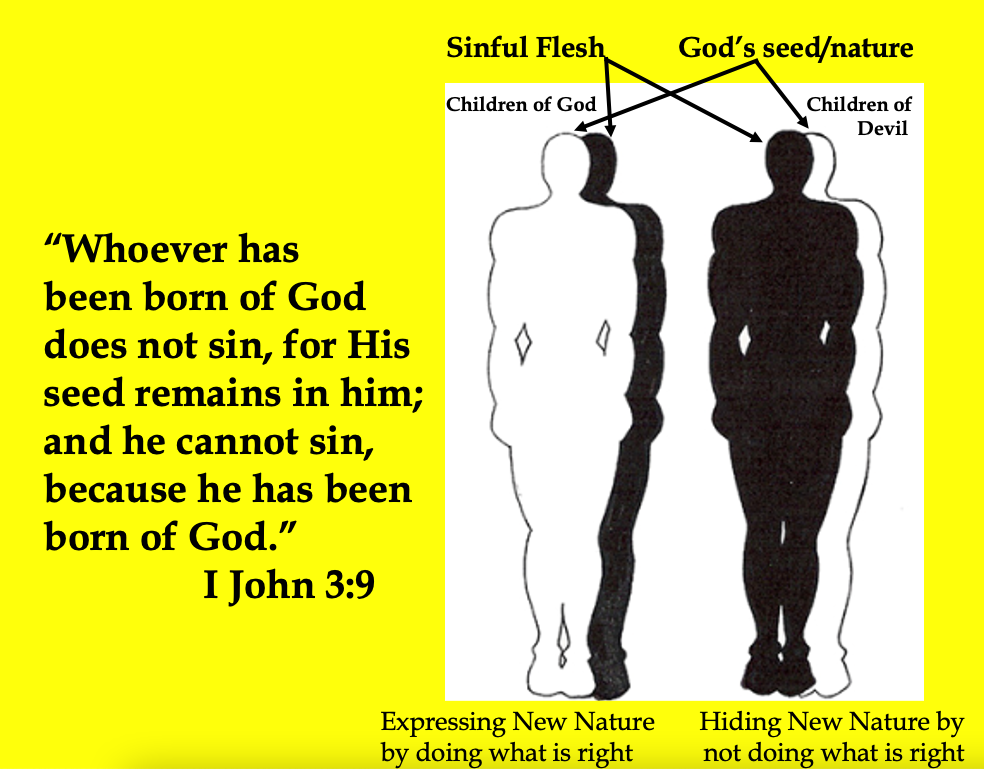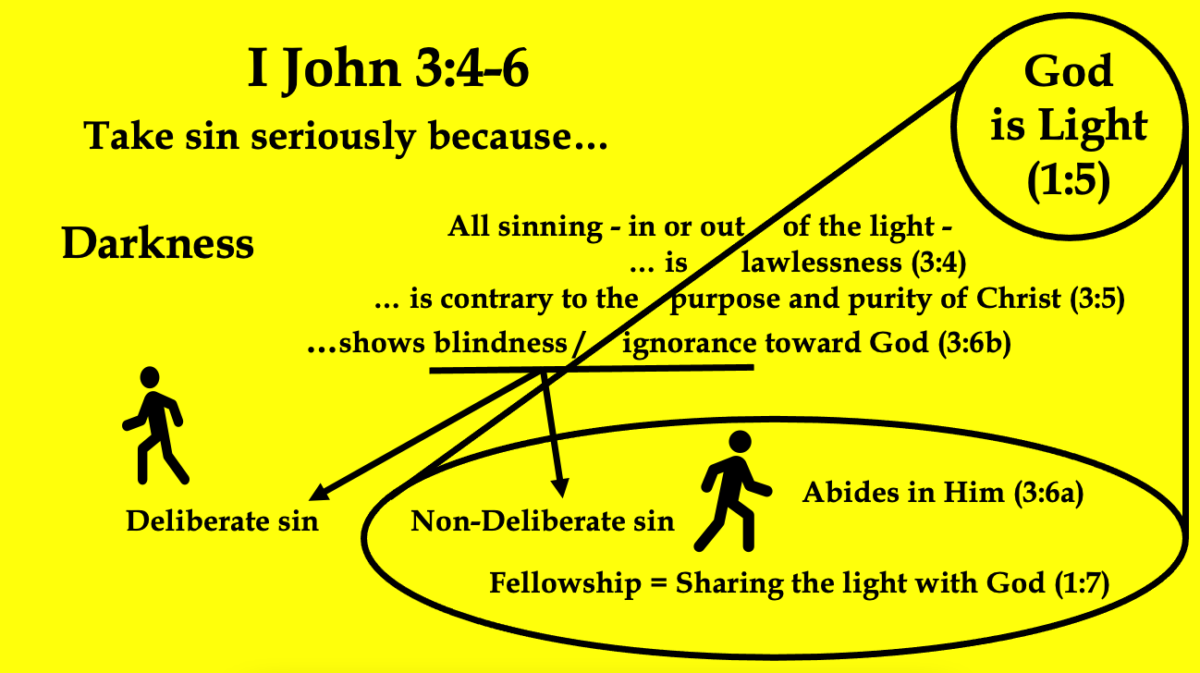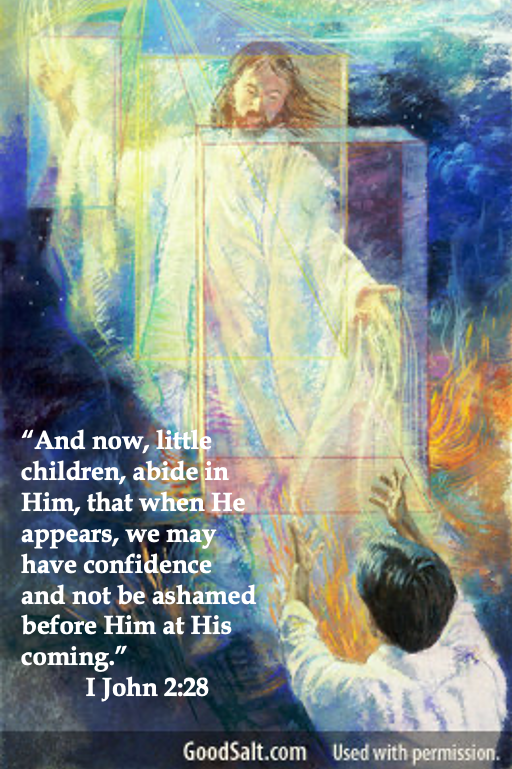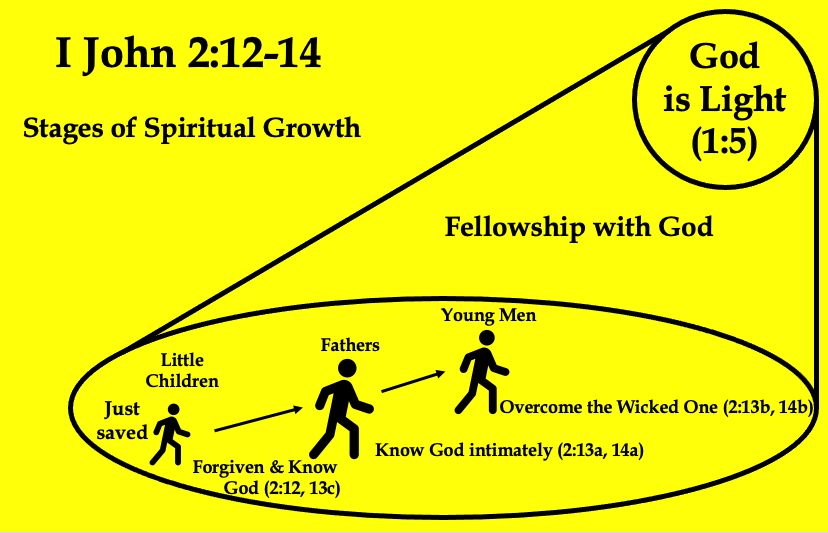“Whoever has been born of God does not sin, for His seed remains in him; and he cannot sin, because he has been born of God.” I John 3:9
Barry Bremen, an insurance and novelty salesman and marketing executive became known as The Great Imposter in the the sports world. From 1979 to 1986, the 6’ 4” athletic Bremen concealed his true identity and posed as a Major League Baseball umpire in the 1980 World Series, a player in the 1979 Major League Baseball All-Star Game, a player in the 1981 National Basketball Association All-Star Game, a National Football League referee in 1981, a Dallas Cowboys cheerleader in 1979, and a professional golfer in 1979-1980 and 1985. He also posed as an Emmy Award accepter in 1985 on behalf of actress Betty Thomas who was awarded the best Supporting Actress statue for her role on the police drama “Hill Street Blues.” Later Bremen apologized to Thomas, informing her he had really thought she was not there to accept her award. 1
Bremen’s stunts landed him on The Tonight Show with Johnny Carson, the David Letterman Show, and the Today Show. Bremen died of cancer in 2011 but that’s where the story begins in many ways. More than three dozen people have now learned that Bremen is their biological father, through sperm donation. They found out about each other – and Bremen – through genetic testing and the painstaking efforts of one of the children to track their lineage. 2
While Bremen was skilled at concealing his identity outwardly, his biological children discovered his true identity through genetic testing and tracking their lineage back to him. Bremen’s life is comparable to Christians who conceal their true identity as children of God by sinning, but inwardly they all possess the righteous nature or spiritual DNA of their heavenly Father.
The apostle John does not want his Christian readers to be deceived by the teachings of the antichrists (2:18-27) which said you could commit sin and still be close to God. 3
“Perhaps the antichrists felt free to sin while at the same time denying their guilt and claiming to behave righteously.” 4
He writes, “Little children, let no one deceive you. He who practices righteousness is righteous, just as He is righteous.” (I John 3:7). John’s point is that “he who practices righteousness,” not sin, is what manifests that a person has an inward “righteous” standing before God through faith in Jesus (2:29; cf. Rom. 4:5). Only “righteousness” arises from a “righteous” nature.
John wrote “that God is light and in Him is no darkness at all.” (1:5). This is God’s nature – perfect holiness and perfect righteousness. God has absolutely no sin or “darkness at all.” Since God’s divine nature “is righteous,” when someone “practices righteousness,” you can know that it must be coming from God’s “righteous” nature inside that person (3:7). That is, that person must be born of God. 5
In I John 2:29, we learned that the phrase, “he who practices righteousness” is not referring to humanistic kindness or morality which even non-Christians can manifest. This “righteousness” (“what is right” translates tēn dikaiosynēn) 6 is not possible apart from believing in Christ for new birth and loving one’s fellow Christians. 7 John writes, “And this is His commandment: that we should believe on the name of His Son Jesus Christ and love one another, as He gave us commandment.” (I John 3:23). When someone practices Christ’s “righteous” behavior it means two things: they are born of God through belief in Jesus Christ and they are loving one another as Christ commanded.
John is telling us in I John 3:7 that a person “who practices righteousness” has been given a part of God’s divine “righteous” nature. Peter states something similar when he writes, “3 as His divine power has given to us all things that pertain to life and godliness, through the knowledge of Him who called us by glory and virtue, 4 by which have been given to us exceedingly great and precious promises, that through these you may be partakers of the divine nature.” (2 Pet. 1:3-4).
Commenting on these verses, Anderson writes, “Having His divine nature does not mean that we are exactly like God. We are not omnipotent, omniscient, omnipresent, immutable, and so on. But we have some of His nature, a nature given to us when we were born again, born of God. Some of His attributes cannot be passed along to us, as mentioned. But some of them we can share and He can produce through us: love, truth, holiness, and so on. His divine love (agapē) is produced by His Spirit (Gal 5:22) in our new, born-again-with, divine nature.
“The principle should be clear: Divine roots produce divine fruits. This is what should characterize the child of God.” 8
The apostle John is saying to us, “Do not rationalize sin!” Rationalizing sin has been around since the fall of mankind in the garden of Eden (Genesis 3:1-7). It is a lie for Christians to think we can remain close to Christ and deliberately sin without confession or repentance. Because God is righteous and we are His children who possesses His righteous nature, we are to live righteously. We are not to be deceived into thinking we can express our born-again nature by sinning because all sin is sourced in Satan.
“He who sins is of the devil, for the devil has sinned from the beginning. For this purpose, the Son of God was manifested, that He might destroy the works of the devil.” (I John 3:8). Satan’s sinful career dates from “the beginning” of creation. This is not a reference to eternity past since the Devil is a created being like all the angels (Gen. 2:1; Ex. 20:11; Psalm 104:4; Col. 1:16; Heb. 1:7) and therefore is not eternal. 9 Sin originated with the Devil when he introduced sin into (Isaiah 14:12-15; Ezek. 28:11-15) God’s perfect creation (Gen. 1:31), and sin is his constant practice. 10
To be “of the devil” (ek tou diabolou) does not mean a Christian “who sins” is not saved (3:8a). John is saying that all sin, whether a Christian or non-Christian does it, is sourced in Satan. 11 Just as all genuine righteousness is sourced in God (“of God”) Who is righteous, so all sin is sourced in the devil (“of the devil”) who sinned from the beginning. To believe anything less is to prepare the grounds for tolerating sin. John wants us to understand that all our behavior either flows from heaven or hell.
“When a Christian is ‘of the devil,’ John means that, when he commits even one sinful act, in the doing of that act, even though the ultimate source was his sin nature, he has yielded to satanic influence. Or, more simply, he is acting like Satan would want him to act; according to his values. Christ exhorted us to pray that we might be delivered from the ‘evil one’ (Matthew 6:13), and Paul warned us that our battle is not against flesh and blood but against ‘principalities and powers of darkness,’ and the flaming darts of ‘the evil one’ (Ephes. 6:12, 13). Even though the source of all sin is the heart and our own lusts (James 1:14), it is possible for Christian behavior to be inspired and enabled by Satan who pours gasoline on the flame.
“For example, Ananias’ and Sapphira’s hearts were ‘filled’ by Satan. They were ‘of the devil’ when they lied to the Holy Spirit. When Jesus told Peter, ‘Get thee behind me, Satan’ (Mark 8:33), it was evident that Peter’s behavior was ‘of the devil’ (characterized by Satan’s influence) in that one act.” 12
If we are honest with ourselves, we have all tried to rationalize specific sins in our lives. We may try to justify sin by saying to ourselves, “God made me this way.” “It is only a weakness.” “It won’t hurt anyone.” “No one has to know.” “Everyone is doing it.” “This is the only way I can endure stress or face pain.” “I cannot change.” No matter how we attempt to rationalize our sin, John wants us to realize that when we do sin, we are imitating the devil who sinned from the beginning.
“How, then, can a believer do what is right (3:7b) and commit sin (3:8a) in the space of a few seconds? Consider Peter. He boldly confessed that Jesus is the Christ, and Jesus blessed him because God had revealed it to him (see Matt 16:13-17). However, in no time, Jesus told Peter, ‘Get behind me, Satan,’ when he denied that Christ must suffer (Matt 16:21-23).
“Throughout each day, your actions will either be influenced by God or the devil. Satan can’t make you sin, but he can entice you. So, to whom will you listen? Will you be ‘of the devil’ so that he gets credit for your deeds? Or will you live by the truth, come to the light, and do works for which God gets the credit (see John 3:21)? Turn to Christ who can render powerless the devil’s works in your life (1 John 3:8). To avoid living a life that is not of God takes more than merely carrying your Bible and saying, ‘hallelujah.’ It requires doing what is right and loving fellow believers in submission to the Holy Spirit (3:10).” 13
John also wants us to realize that when we sin, we are opposing Christ’s work: “For this purpose the Son of God was manifested, that He might destroy the works of the devil.” (3:8b). What are “the works of the devil”? In the context, we are told that “he who sins is of the devil” (3:8a) and the person “that does not practice righteousness is not of God, nor is he who does not love his brother” (3:10b). Hence, Satan’s works include all sin, especially refusing to “practice righteousness” by loving one’s Christian “brother.”
The primary way Christ destroys the works of the devil is seen in the next verse: “Whoever has been born of God does not sin, for His seed remains in him; and he cannot sin, because he has been born of God.” (I John 3:9). The way that Christ destroys the work of the devil (3:8) is to give believers a new sinless self (“seed”) which cannot sin. Since God cannot sin, the divine nature He places inside His children cannot sin either. A sinless Parent cannot beget a sinful child. So, sin is never an act of the born-again nature inside us because it is incapable of sinning (3:9) and because all sin is sourced in the devil (3:8).
However, some Bible teachers and translators interpret the Greek present tense of 3:9 to mean no Christian sins continually or habitually (see discussion of 3:6). According to this view, prolonged continuation in sin does not take place if one is truly born again. The NIV translation reflects this view inserting the words “will continue” and “go on” in front of the present tense verbs: “No one who is born of God will continue to sin, because God’s seed remains in them; they cannot go on sinning, because they have been born of God.” (I John 3:9 NIV). As pointed out previously in 3:6, this view is not plausible because habitual or continuous action is not inherent in the Greek present tense.The translators have added these additional words based on their theological point of view, not a careful study of the Greek grammar. 14
J. P. Louw has demonstrated convincingly that the present tense in John’s first epistle does not mean continuous or habitual action. 15 It is best to understand the present tense in I John 3:9 in an absolute sense (“Whoever has been born of God does not sin… he cannot sin”) because the present tense (“does not sin… cannot sin”) in the New Testament never bears the habitual meaning (“will continue to sin… cannot go on sinning”) without the assistance of qualifying words like diapantos (“continually”- Luke 24:53; Heb 9:6; 13:15); eis to diēnekes (“continually”- Heb 7:3; 10:1); 16 or pantote (“always”). First John 3:9 has no qualifying words.
This use of the absolute present tense is consistent with John’s refutation of the antichrists’ tolerance of sin. John has already said there is absolutely no sin in God (1:5), in Jesus (3:5), and in the born-again nature of the believer (3:9). 17
In 3:9, John states that the person “born of God does not sin, for His seed remains in him.” “His seed” refers to God’s nature.
“His divine nature is passed down through His divine seed. The new birth places His seed in us. Just as my physical seed cannot produce something outside its genetic code, so God’s seed cannot produce something contrary to His nature, that is, sin. God’s nature cannot produce sin. God’s nature in us (His seed) cannot produce sin.” 18
It is important to realize that sin is never an act of the true born-again nature that a person receives from God when they believe in Jesus Christ (cf. John 1:12-13) because it is incapable of sin (I John 3:9) and because all sin is sourced in the devil (I John 3:8). The apostle Paul refers to this born-again nature as the “new man which was created according to God, in true righteousness and holiness” (Ephes. 4:24; cf. Col. 3:10), “the inward man” (Rom. 7:22), or “the law of the mind” (Rom. 7:23).
Many have wondered how this understanding can harmonize with John’s statement in I John 1:8 that Christians who say they have no sin are self-deceived. Hodges explains:
“In 1:8 John warns, ‘If we say that we have no sin, we deceive ourselves.’ But in 3:9 he says, ‘whoever has been born of God does not sin.’ As total persons, believers do sin and can never claim to be free of it, but their ‘inward self’ that is regenerated does not sin.
“In describing his struggle with sin Paul notes that two diverse impulses are at work. So, he can say, ‘For I delight in the law of God according to the inward man. But I see another law in my members, warring against the law of my mind, and bringing me into captivity to the law of sin which is in my members’ (Rom 7:22-23). Previous to this he had concluded, ‘Now if I do what I will not to do, it is no longer I that do it, but sin that dwells in me’ (v 20). His conclusion is simple; ‘So then, with the mind I myself serve the law of God, but with the flesh the law of sin’ (v 24). At the core of his being (in his inward man) he does not and cannot sin. The inward man (the ‘regenerate self’) is absolutely impervious to sin, fully enslaved to God’s will. If sin occurs, it is not the inward man who performs it.
“Sin does exist in the Christian, but it is foreign and extraneous to his regenerated inner self, where Christ dwells in perfect holiness. Since Christ is eternal life (1 John 5:20), the one who possesses that life cannot sin because he is born of God. The divine seed (sperma) of that life remains (menō, ‘abides,’ ‘stays’) in him who is born again, making sin an impossibility at the level of his regenerate inward self.” 19
Comparing John’s statements to Paul’s in Romans 7:14-25, Anderson writes, “The evil which I do is done by me, but not really; it is done by my sin(ful) nature. So, the divine good which I do is not done by me; it is done by my divine nature. Both of these Natures dwell in the child of God simultaneously. However, even though the sin(ful) nature from our ‘B.C. days’ stays with us after we are born again (as does our physical body, our personality, our core intelligence, et cetera), the addition of God’s divine nature with the indwelling Holy Spirit changes our identity forever. We are radically, fundamentally different from the Old Man (all we were before we met Christ or were born-again). We now have the mind of Christ (1 Cor 2:16). ‘For I delight in the law of God according to the inward man’ (Rom 7:22). When I obey the lusts of the flesh, my new inner man (the divine nature) is disgusted and repulsed. I can only cry out with Paul, ‘Oh, wretched man that I am!’ when I choose to follow the lead of my sinful side.
“This inner disgust was not present in my Old Man. Conviction from the Holy Spirit, yes; disgust and anguish such as Paul was reeling from in Rom 7:24, no. The new creature in Christ (2 Cor 5:17) knows that when the believer knowingly sins, he is not acting in accordance with this fundamental change which has taken place within him when he was born-again. He longs with the mind of Christ to act in harmony with his new identity. In fact, that is the only way he can manifest or make visible who really is a child of the King.” 20
After years of studying the New Testament, I have not been able to find any verses which explicitly say our new, regenerate self needs to be transformed into the likeness of Christ before being translated into God’s presence at death or the Rapture of the Church. Why? Because our regenerate self is already sinless (I John 3:9; cf. 2 Cor. 5:8; Ephes. 4:24; Phil. 1:21-23). But our physical bodies in which our born-again self dwells are still unredeemed and will not be transformed into the glorious likeness of Jesus’ resurrection body until He returns for His Church (I John 3:2; cf. Rom. 8:23; I Cor. 15:51-54; Phil 3:20-21; I Thess. 4:14-17). Then and only then will our bodies fully manifest our regenerate self.
The apostles John and Paul want us to understand that sin is foreign to who we are in Christ (I John 3:9; cf. Rom. 7:17-20; Gal. 2:20). But Satan wants to convince us that we are sinners. Why? Because sinning is accepted as natural and normal. But if we realize we are children of God at the core of our being (I John 3:1-9), then we will conclude that sinning is abnormal and unnatural to our Christian lives. Sin is inconsistent with who we are at the core of our being. It conceals our true identity in Christ which is what John addresses in the next verse.
“In this the children of God and the children of the devil are manifest: Whoever does not practice righteousness is not of God.” (I John 3:10a). This part of the verse makes the most sense if we understand it to be the conclusion of what John said previously. Hence, the words “in this” refer back to I John 2:29 – 3:9 where John talks about expressing or manifesting our born-again nature by practicing righteousness. The last part of verse 10 looks forward to expressing our born-again nature by loving our Christian brother (3:11-4:19). Both discussions are intended by John to motivate his Christian readers to prepare to have more confidence and less shame at the time of Christ’s coming (2:28).
The key word in 3:10a is the word translated “manifest” (phanera) which means to be “visible” or “plainly…seen.” 21 According to I John 2:29-3:9, a Christian can “manifest” or make visible the “righteous” born-again nature given to him or her at new birth by practicing righteousness. On the flip side, a Christian can conceal his or her born-again nature by not practicing righteousness.
Hodges writes, “Because a child of God is sinless at the core of his being, he can never be ‘manifest’ through sin as can a child of the devil. While an unsaved person can display his true nature through sin, a child of God cannot. When a Christian sins, he conceals who he really is rather than making it manifest. If the readers perceive someone doing real righteousness, then-but only then-can they perceive this action as a true product of new birth (2:29) and can thus behold God’s love (3:1). This consideration is crucial to John’s advancing argument” 22 whereby he defines “righteousness primarily in terms of Christian brotherly love and to show how such love properly expresses itself.” 23
John is saying to Christians in 3:10a, “Express your true self!” The phrase “children of the devil” can refer to both saved and unsaved. Nowhere does the Bible say one is “born of the devil,” “for ‘the devil begets none, nor does he create any; but whoever imitates the devil becomes a child of the devil by imitating him, not by proper birth’ [Augustine, Tract, 4. 10].” 24
“Those who are of the devil, either saved or unsaved, do the devil’s work by opposing the truth (cf. Matt. 13:38; 16:23; John 8:44; Acts 13:10; 2 John 9). One form of opposing the truth is disregarding it. Saved people are of the devil in the sense that sometimes they follow the devil’s leading and do his work, though they no longer belong to the devil. An example of those who are of the devil is the antichrists (plural) that John previously warned about (2:22-23). Jesus called the unbelieving Jews the children of ‘your father the devil’ (John 8:44)” 25 because they opposed the truth Jesus revealed to them about their sinfulness and His identity as the Son of God Who can set them free from bondage to sin (John 8:32-47).
Whenever we sin, we are behaving like children of the devil, since all sin is sourced in him (3:8). The phrase “children of God” can only refer to saved people because the Bible does say only those who believe that Jesus is the Christ are born of God (I John 5:1). Children of God can only express who they really are when they live righteously.
This does not mean, however, that when a Christian sins he is not a child of God regardless of how long or often he sins. But when he does sin, he is only revealing what he was before he was born again through faith in Christ. It does not mean he was never born again with a divine nature. But it does mean he is keeping the divine nature hidden. 26
“A psychiatrist thought he would do an experiment on self-image, so he got ten volunteers, brought them into his office one at a time, and briefed each on his assignment. He explained to them, ‘I want to see how people will respond to someone with a hideous, ugly deformity.’ Then the psychiatrist brought in a make-up artist who put an ugly scar on the right cheek of each volunteer. Before sending the volunteer out, they got a chance to look at themselves in a mirror. After the volunteer had gotten a good look, the mirror was taken away and the make-up artist was told to put the final touches of make-up on the scar. But, unknown to the volunteer, the makeup artist was instructed to pull the scar away before sending the volunteer out. The volunteer did not look any different when he left than when he had come in.
“Each volunteer was told to sit for twenty minutes in the waiting room with other patients to observe their reactions to the phantom deformity of the volunteer. Then their job was to come back into the psychiatrist’s office after observing the reactions and report how people had treated them. Ten different volunteers, with ten different perspectives resulted in reports that were all the same. According to the volunteers who thought they had ugly scars on their cheeks, the other patients in the waiting room were rude to them. People shunned them, and worst of all, if you can believe it, the other patients stared straight at the scars—the scars that weren’t actually there.
“The point of the experiment was to demonstrate that other people react to us in response to how we see ourselves. When you look inside yourself, what do you see—a big, hideous scar, or the Lion of the Tribe of Judah? When you look into the mirror, do you see a prairie chicken or a golden eagle?” 27
How we see ourselves determines how we live. The apostle John wants his Christian readers, including you and me, to see themselves as children of God who possess a sinless born-again nature (God’s “seed”) at the core of their being so they will manifest this righteous nature by living righteously. This type of Christian is represented by the image on the left. He or she is visibly manifesting God’s righteous nature inside them by doing what is right. However, this is not what gets them to heaven. Only believing that Jesus is the Christ makes us born of God (I John 5:1). But manifesting our true identity by practicing Christ’s righteous behavior will give us more confidence and less shame before Jesus when He returns for His church (2:28).
On the other hand, a Christian who is yielding to his or her sinful flesh is hiding their new born-again nature inside them. This type of believer is represented by the drawing on the right. He is behaving like a child of the devil when he sins, since all sin is sourced in Satan (3:8). Failure to manifest their new nature through their actions does not jeopardize their salvation, but it does disrupt their fellowship with God and other believers. It will also reduce their confidence and increase their shame before Christ when He returns for His church (2:28).
Remember Barry Bremen? He concealed his identity from others by wearing disguises. But he was unable to hide his identity from his children who possessed the same genetic code as his. Likewise, Christians can conceal their born-again nature from others by sinning. But this in no way erases the spiritual genetic code or divine nature God gave them the moment they believed in Jesus for His gift of eternal life. Such a nature cannot be lost; but it can be hidden from others when we fail to live righteously for our Lord.
Prayer: Heavenly Father, thank You for the righteous born-again nature You gave us the moment we believed in Jesus for His gift of eternal life. Please help us manifest this nature by living life on Your terms and not our own so others can be drawn to Christ living in us. Too often we can yield to our sinful nature instead of relying on the Holy Spirit to express our new nature through righteous living. When this happens, the evil one would like to trick us into thinking that we are not really Your children after we have sinned, thus leading us into more sin. Help us to know and embrace the truth found in 1 John 3:1-10 – that we are Your children at the core of our being – so we can avoid the devil’s deception and rise from our confession to You knowing we are the same inwardly holy children we were before we sinned. In the matchless name of the Lord Jesus Christ, we pray. Amen.
ENDNOTES:
1. Retrieved on January 20, 2023, at https://en.wikipedia.org/wiki/Barry_Bremen.
2. Episode 221 of the Sports Media Podcast entitled, “The Amazing, Incredible Story of Barry Bremen, The Sports Imposter. As told by guests ESPN’s Russell Dinallo and Jeremy Schaap” at https://podcasts.apple.com/de/podcast/the-amazing-incredible-story-of-barry-bremen/id1366264191?i=1000569498767.
3. Zane C. Hodges; Robert Wilkin; J. Bond; Gary Derickson; Brad Doskocil; Dwight Hunt; Shawn Leach; The Grace New Testament Commentary: Revised Edition (Grace Evangelical Society, Kindle Edition, 2019), pg. 595.
4. Zane C. Hodges, The Bible Knowledge Commentary Epistles and Prophecy, Editors John F. Walvoord and Roy B. Zuck (David C. Cook, 2018 Kindle Edition), Kindle Location 3824.
5. David R. Anderson, Maximum Joy: I John – Relationship or Fellowship? (Grace Theology Press, 2013 Kindle Edition), pp. 156-157.
6. Hodges, The Bible Knowledge Commentary Epistles and Prophecy, Kindle Location 3771.
7. Hodges, The Grace New Testament Commentary, pg. 594.
8. Anderson, Maximum Joy, pg. 157.
9. Hodges, The Grace New Testament Commentary, pg. 595.
10. Hodges, The Bible Knowledge Commentary Epistles and Prophecy, Kindle Location 3827.
11. The Greek phrase ek tou diabolou is an ablative genitive of source which is the use of the genitive throughout verses 3:8-10. Hence, the genitive phrase “is not of God” (ouk estin ek tou Theou) in 3:10b means that a Christian who does not practice righteousness nor love his brother does not have actions that are sourced in God – see Hodges, The Bible Knowledge Commentary Epistles and Prophecy, Kindle Location 3855 and Joseph Dillow, Final Destiny: The Future Reign of The Servant Kings: Fourth Revised Edition (Grace Theology Press, 2018 Kindle Edition), pg. 500.
12. Dillow, Final Destiny, pg. 500.
13. Tony Evans, CSB Bibles by Holman, The Tony Evans Bible Commentary (B & H Publishing Group, Kindle Edition, 2019), pg. 2943.
14. Anderson, Maximum Joy, pp. 146, 151.
15. Ibid., pg. 151 cites J. P. Louw, “Verbal Aspect in the First Letter of John,” Neotestamentica 9 (1975): 99-101); cf. Hodges, The Bible Knowledge Commentary Epistles and Prophecy, Kindle Location 3804 to 3809 who cites Sakae Kubo, “1 John 3:9: Absolute or Habitual?” Andrews University Seminary Studies 7 (1969):47-56; C.H. Dodd, The ]ohannine Epistles, Moffatt New Testament Commentary series (New York: Harper and Row, 1946), pp. 78-81; I. Howard Marshall, The Epistles of John, New International Commentary on the New Testament series, Reprint ed. (Grand Rapids: Wm. B. Eerdmans Publishing Co., 1984), pg. 80.
16. Anderson, Maximum Joy, pg. 151; Dillow, Final Destiny, pg. 493 cites Zane C. Hodges, The Epistles of John: Walking in the Light of God’s Love: A Verse-by-Verse Commentary (Irving, TX; Grace Evangelical Society Theological Society, 1999), pg. 143.
17. Dillow, Final Destiny, pg. 491.
18. Anderson, Maximum Joy, pg. 159.
19. Hodges, The Grace New Testament Commentary, pp. 595-596.
20. Anderson, Maximum Joy, pp. 159-160.
21. Walter Bauer, A Greek-English Lexicon of the New Testament and Other Early Christian Literature: Third Edition (BDAG) revised and edited by Frederick William Danker (Chicago: University of Chicago Press, 2000 Kindle Edition), pg. 1047.
22. Hodges, The Bible Knowledge Commentary Epistles and Prophecy, Kindle Location 3844 to 3849.
23. Ibid., Kindle Location 3849.
24. Tom Constable, Dr. Constable’s Notes on I John, 2022 Edition, pg. 76 cites Robert Jamieson, A. R. Fausset; and David Brown, Commentary Practical and Explanatory on the Whole Bible, Reprint ed. (Grand Rapids: Zondervan Publishing House, 1961), pg. 1504.
25. Ibid., pg. 81.
26. Anderson, Maximum Joy, pp. 160-161.
27. Ibid., pp. 162-164.










